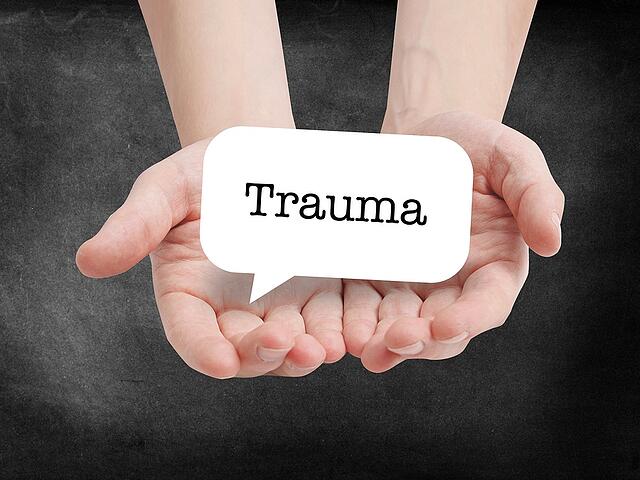When a person suffers a traumatic experience, it can generate a series of negative emotions that become “trapped” in the body and mind. Thus, instead of healing the hurtful event, the trauma remains in our body as energy in our unconscious, affecting our life until we discover and process it.
Overcoming trauma involves recognizing the distressing emotions that have harmed us in those moments, feeling them, and processing them accordingly. On the other hand, if we end up ignoring a psychological trauma or suppress the feelings linked to these experiences, this can create deeper and more lasting damage.
Why do we have to overcome trauma?
Sometimes we feel that we have not lived traumas because we think that it has to be something very shocking at an objective level (physical abuse, sexual abuse, or something of this level) when it is all experience that is difficult for us to process, and it stays there, entrenched, so that sometimes, as we do not remember it, it seems that it does not affect us, it remains silent in our unconscious, although it affects our self-esteem, self-concept, how we relate to each other and how we make decisions.
When an experience that for us has been negative generates a wound, it implies that we have not learned to locate and manage this situation, and therefore, surely some similar ones in our life. By not managing it, we end up dealing with them as we can. We learn to live with the traumas instead of facing them (although this is not always done in such a simple way).
In the face of trauma, many people believe that no one will understand them, that they are the only ones who have experienced such a situation, or that they may be exaggerating the event. This feeling can end up making us feel unfocused and isolated in front of others, and even affect our daily life. In these cases, there are some reasons that should prompt us to talk and work to overcome trauma:
- Get support: Whether you require understanding, and empathy or just feel you need to talk about it with someone, it’s important to get support if you feel you can’t get over a trauma or are being affected by it.
- Making sense of what happened: “Processing” a trauma involves making sense of it. Many times a traumatic experience is meaningless, i.e., it is a set of emotions, reactions, and questions that make us uneasy. Therefore, converting these feelings and thoughts into a language that is understandable to us is necessary to ‘understand’ the trauma.
- Realize that you are more than your trauma: Trauma can be a turning point in a person’s life. In some cases, people may even have their identity affected by the experience.
- Remove the taboo of trauma: Many times keeping it a secret makes us prisoners of our own emotions. By keeping this silence we magnify the experience, which makes it more difficult to digest. To talk about it is to break the taboo, to give it the importance it has, and to eliminate our own chains.
You must take your time to start working on overcoming trauma. The crucial thing is to take it at your own pace and talk about it when you feel you are ready. In case you feel you need help to heal the trauma, you can always count on the help of a mental health professional.
How to overcome trauma?
In addition to seeing a professional psychologist, people can work on the following aspects to overcome psychological trauma:
Give yourself time: It can take a while to get over a trauma. It may take a lot of work to accept what happened or to learn to live with it. If you have lost someone or are in pain because of it, it is essential to give yourself permission to grieve.
Talk about the event: To heal the trauma, it is vital to talk about it with someone you trust. In fact, it is normal for people to try to avoid things that remind them of the event and even not want to express what they feel to others. Keep in mind that avoiding these memories and the feelings associated with them often makes people feel much worse about it.

Avoid spending a lot of time alone: If you feel that trauma is affecting you too much, it is important to try to avoid isolating yourself from others. Research shows that being around other people makes it less likely that you will experience mental health problems after a traumatic event. Beware of avoiding the trauma by always being with people, partying, and drinking beer…. In short, busy. It is essential to talk about it and to support us with people close to us, without occupying our mind not to think about it, but to make that step lighter.
Follow a routine: Try to maintain the routine you had before the traumatic event happened, even if it is difficult. Above all, it is crucial to take care of your physical and mental health, so focus on exercising regularly, getting enough sleep, and maintaining a healthy diet. In this routine follow basic aspects of self-care, they will help you to keep your self-esteem afloat: meditate, write, wash your face, do sports, read, eat healthily…
Be aware of how you feel: It’s normal to want to avoid thinking about the traumatic event at all costs. But, avoiding working to overcome the trauma can prolong the stress and prevent you from recovering from this situation. For this it comes in handy to meditate, write or keep an emotional diary, it will make being in touch with what you feel easier, the more information about your feelings, the closer you are too emotional management.
Be patient: Remember that it is normal to feel this way about an event that has caused you distress. Try to take the process of healing calmly.
Go to a professional specialized in trauma: Working hand in hand with someone who knows this will make the process faster, and less burdensome, and we will work on aspects that are important to maintain, such as self-esteem, favorable beliefs, and effective defense mechanisms in these situations.


